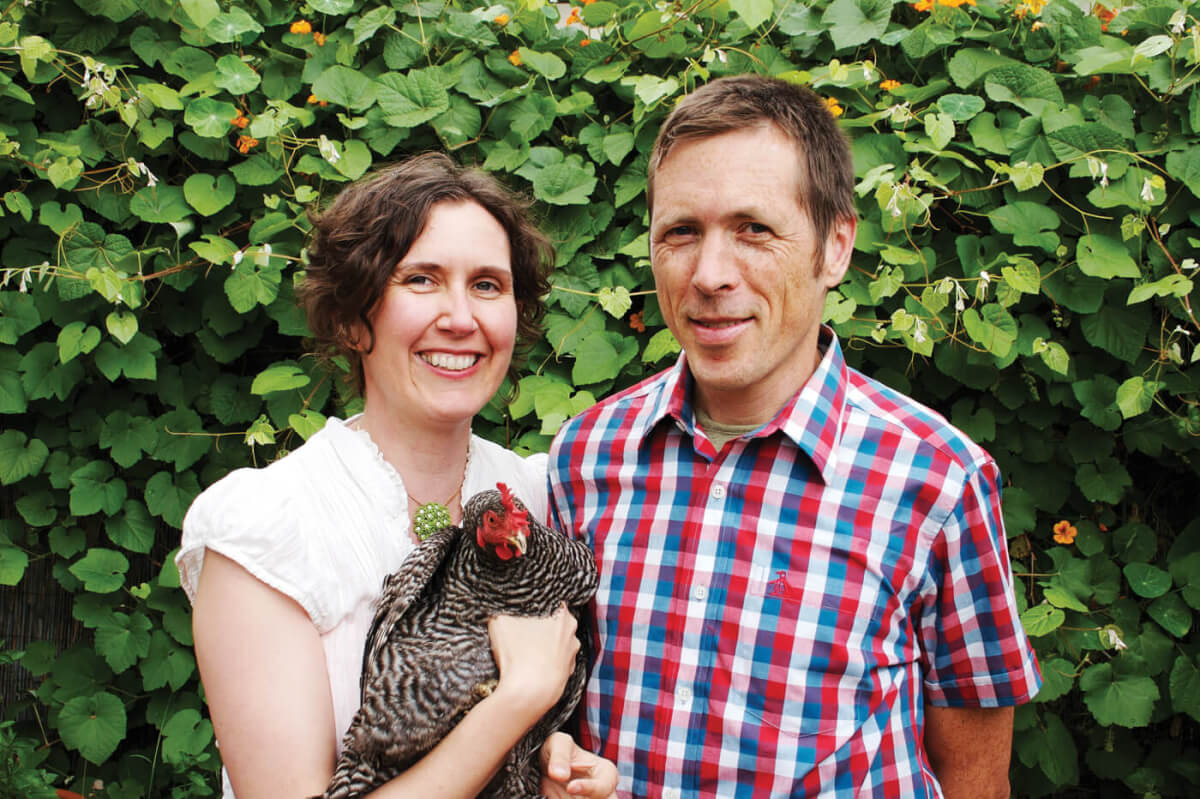It’s a nagging question faced by many Americans who strive to quit their jobs and live as homesteaders — how will you pay the bills?
Eating your homegrown vegetables and hunting for your dinner are all viable options, but even if you can build your own structures, chop wood for warmth and sew your own clothes, you’ll inevitably have to pay actual cash for some items throughout the course of the year.
But you can live the lifestyle you crave while still making an income if you combine your creativity and your skill to make a living off of your land.

APPRENTICE FIRST
Prior to getting into the income-earning options, it’s important to stress that you should have an idea of where your skills lie before you abandon your job for the homesteading lifestyle, says Erik Knutzen, who co-authors the urban homesteading blog with his wife Kelly Coyne. “I think most people should make the transition slowly,” Knutzen says. “Set aside a few hours a week to devote to new projects. Volunteering is also a great way to learn new skills. And education is really important. Take a class or apprentice with someone who is doing what you would like to do.” For example, if your homesteading plans involve growing and selling Christmas trees, you’ll first want to work in the industry to determine which types of trees are the most lucrative and plentiful, which grow the fastest, and what permits are required to sell them. In addition, working with an established tree grower/seller will help you learn how to take care of the trees and what the best methods are for ensuring that they’re healthy and full.
“A growing number of homesteaders are starting cottage food businesses and selling high-quality preserves and baked goods.” —Erik Knutzen, co-author of The Urban Homestead and Making It: Radical Home EC for a Post-Consumer World
NAIL DOWN YOUR SPECIALTY
You can begin to target your potential income sources by considering these common home businesses in which other homesteaders have succeeded:
Teaching Classes: Knutzen has seen others find success teaching classes such as organic gardening and bread baking—but you can expand that to your own specialty area if you have one. For instance, if you’ve been making wooden bowls or homemade candles, you can launch classes where you teach others how to make the same products.

Harvesting Your Bounty: Some homesteaders have successfully supported their families by growing flowers and herbs and selling them at farmers’ markets, Knutzen says. You can also sell your home-grown fruits and vegetables or fresh chicken eggs there and many farmer’s markets also sell natural personal care products such as homemade soaps and lip balms.


Selling Consumables: Knutzen has also known homesteaders to earn a living by growing Chinese medicinal herbs for the domestic market. “Many states also have cottage food laws that allow home-based businesses to make and sell, out of a home kitchen, what the USDA calls ‘non-hazardous foods,’ such as bread, jams, jellies, cakes and cookies,” he adds. “A growing number of homesteaders are starting cottage food businesses and selling high-quality preserves and baked goods.”

“…you can live the lifestyle you crave while still making an income if you combine your creativity and your skill to make a living off of your land.”

Offering a Service: If you’re handy, your homestead can be a great place to offer your personal services such as custom knitting, home-spun yarn in custom colors, hand-sewn tailoring, or natural cleaning products custom-made for people allergic to specific substances. You can create a free website where you offer your services and sell your products.

- Teach classes
- Utilize farmer’s markets to sell homemade/ homegrown goods, such as eggs, herbs, flowers, vegetables and personal care items
- Sell non-hazardous foods, including cakes, jams, jellies, bread and cookies
- Offer a service, such as knitting or tailoring
GET STARTED
Now that you’re armed with the basics of earning a living as a homesteader, get out there and try it! There’s no time like the present to start earning money while doing something you love.
Editor’s note: A version of this article first appeared in the Fall 2013 print issue of American Survival Guide.


